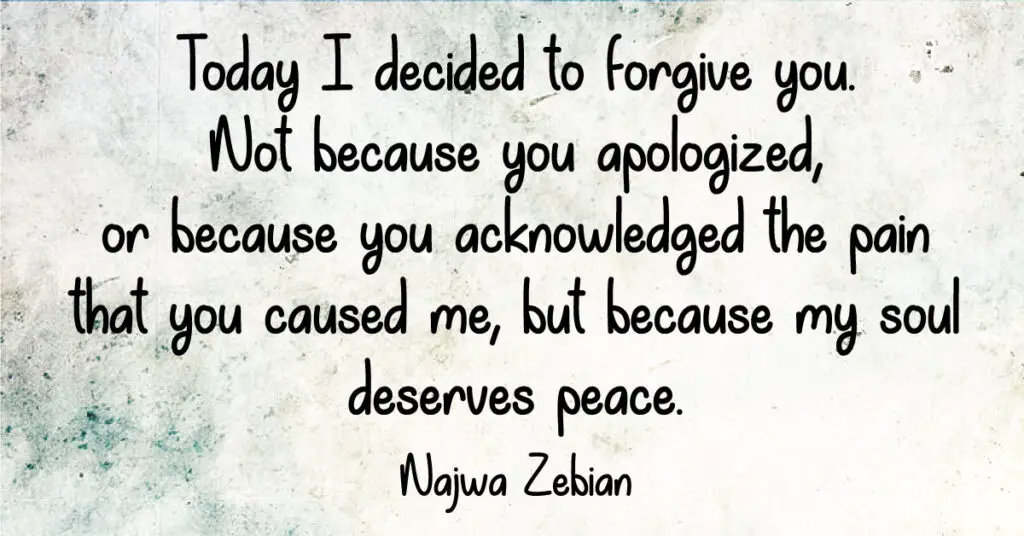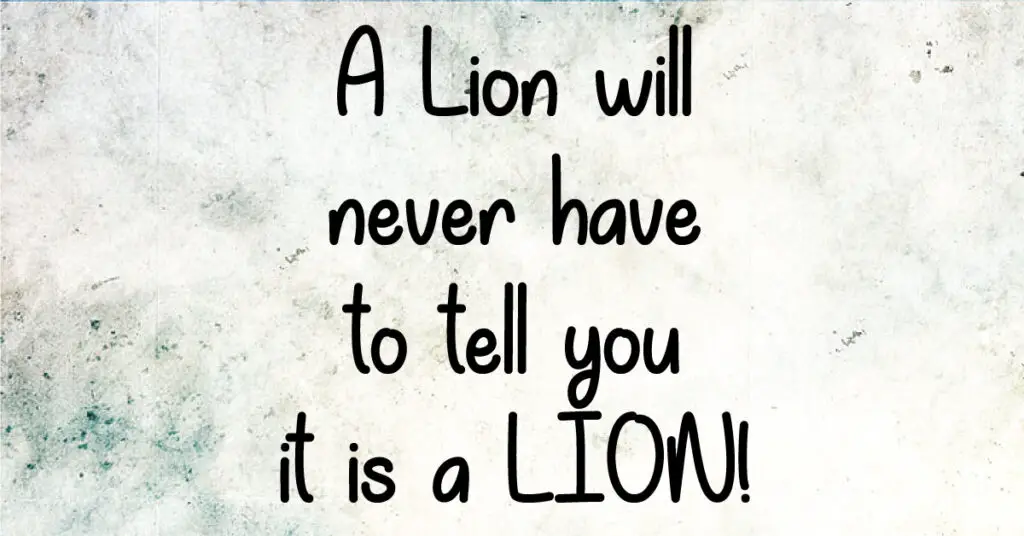Cheating in a relationship can be a devastating breach of trust, causing emotional pain and turmoil for both partners involved. When someone cheats, they may feel guilty and attempt to cover their tracks to avoid detection and the consequences that follow. Cheaters will often go to great lengths to conceal their infidelity, including lying, gaslighting, and manipulating their partner’s emotions to deflect blame and protect their reputation.
However, despite their efforts, secrets have a way of coming to light, and the damage caused by cheating can have lasting effects on a relationship. It’s essential to be honest and transparent in any relationship, navigating difficulties with integrity and respect for your partner’s feelings and well-being.
Beware! Recognizing the Deceptive Keywords Used by Cheaters
“It’s not what it looks like”
The phrase suggests that there is a misunderstanding or misinterpretation of the situation and that the accused person did not intend to do anything wrong. However, this phrase is often used as a way to manipulate the situation and avoid taking responsibility for their actions. If you hear this phrase from your partner, it’s essential to have an open and honest conversation about the circumstances of the situation.
Ask them to explain their actions and provide evidence to support their claim that nothing inappropriate occurred. If they become defensive or dismissive, it could be a sign that they are trying to conceal something. Trust is a crucial aspect of any relationship, and if you feel like your partner is not being truthful with you, take the time to evaluate the relationship and consider seeking outside help or counseling.
“I was really drunk and I don’t remember anything”
A common excuse used by cheaters to justify their behavior. This phrase suggests that the accused person is not responsible for their actions because they were under the influence of alcohol. While excessive drinking can impair judgment and decision-making, it doesn’t excuse cheating or inappropriate behavior.
If your partner uses this excuse, it’s important to have a candid conversation with them about their actions and how they can work to prevent similar incidents in the future. If you feel like their behavior is becoming a pattern or that you can’t trust them when they drink, consider seeking professional help or counseling to address the issue. Ultimately, it’s up to you to decide whether you can forgive your partner for their actions and move forward in the relationship.
“I need some space”
“I need some space” is a phrase that can be used by partners in any type of relationship, including romantic relationships. While it can be used as a healthy way to communicate a need for personal time or independence, it can also be a red flag for potential issues in the relationship.
If your partner expresses a need for space, it’s important to have an honest conversation about the reasons behind their request and what it means for the relationship. It’s essential to maintain open communication and respect boundaries to ensure a healthy and sustainable relationship.
“I’m just feeling stressed lately”
While stress can cause emotional and physical strain, this phrase can also be a sign of underlying relationship issues. It’s important to have an open conversation with your partner about their stressors and how you can support them.
Additionally, it’s crucial to address any concerns you may have about the relationship and work together to find solutions. Remember, communication and understanding are key to building a healthy and lasting relationship.
“We’re just friends”
While it’s possible for individuals in a romantic relationship to have close friendships outside of their partnership, it’s important to maintain appropriate boundaries and respect the feelings of your significant other. If you feel uncomfortable or suspicious of your partner’s relationship with their friend, it’s essential to communicate your concerns openly and honestly.
It’s important not to jump to conclusions or make assumptions without having all the facts. Trust and communication are vital to building a strong and healthy relationship, and it’s crucial to establish these foundations with your partner to ensure a lasting partnership.
“You’re overreacting”
This phrase implies that the accuser is being irrational or overly sensitive, which can make the person feel like they are in the wrong. It’s important to understand that this tactic is often used to manipulate and control the situation, making it difficult for the accuser to express their concerns or doubts. If you hear this phrase from your partner, it’s important to trust your instincts and stand by your feelings.
Don’t let your partner’s words invalidate your emotions or intuition, and don’t be afraid to seek outside help or counseling if necessary. Remember that healthy relationships are built on mutual respect, honesty, and communication, and if your partner is unwilling to provide these essential components, it may be time to reevaluate the relationship.
“I can explain everything”
“I can explain everything” can be used by partners who feel like they have been caught in an uncomfortable or compromising situation. This phrase suggests that the person has a justifiable explanation for their behavior and wants the opportunity to provide clarity and context. While this phrase may be a sign of innocence, it’s important to approach the situation with caution and objectivity.
If your partner uses this phrase, it’s crucial to listen to their explanation and ask for any necessary clarification. However, it’s also essential to trust your instincts and evaluate the situation based on the facts presented. Don’t let your partner’s words cloud your judgment or make you feel like you are obligated to believe them. Ultimately, it’s up to you to decide whether your partner’s explanation is reasonable and if you can continue to trust them in the relationship.
“I did it for us”
An excuse that can be used by partners who have made a decision or taken an action that may initially seem selfish or hurtful but was done with the intention of benefiting the relationship. While this phrase may be well-intentioned, it’s important to evaluate the situation and understand the motivations behind the person’s actions.
If your partner uses this phrase, it’s important to have an open conversation about their intentions and how their actions will impact the relationship. It’s also essential to consider your own feelings and ensure that your boundaries and needs are being respected. Remember, healthy relationships require trust, communication, and mutual respect, and it’s important to work together to build a strong and lasting partnership.
“You’re always accusing me of things”
While this phrase may be used as a way to express frustration or defensiveness, it can also indicate deeper issues in the relationship, such as a lack of trust or communication. If your partner uses this phrase, it’s important to have an open and honest conversation about the underlying issues and concerns in the relationship.
It’s crucial to approach the situation calmly and objectively and avoid jumping to conclusions or making assumptions. Remember, healthy relationships require trust, honesty, and communication, and it’s essential to work together to build these foundations and maintain a strong and lasting partnership.
“I’m not happy in our relationship”
While it’s possible for individuals to feel unhappy or unfulfilled in a relationship, it’s crucial to communicate these feelings openly and honestly with your partner rather than seeking validation outside of the partnership. If your partner uses this phrase, it’s important to have an open conversation about their feelings and how you can work together to improve the relationship.
However, it’s also important to evaluate the situation objectively and consider whether your partner’s actions are consistent with their words. Remember, cheating is a breach of trust and can have long-lasting effects on the relationship. If you are unable to rebuild trust and move forward together, it may be time to reevaluate the partnership.
“It’s just a harmless flirtation”
While some people may view flirting as harmless or innocent, it’s important to consider the impact of these actions on your relationship and the feelings of your partner. If your partner uses this phrase, it’s important to have an open and honest conversation about your boundaries and expectations in the relationship.
It’s essential to establish clear communication and respect each other’s feelings and needs. Remember, healthy relationships require trust, honesty, and mutual respect, and it’s crucial to work together to build a strong and lasting partnership. If you feel uncomfortable or disrespected by your partner’s behavior, it’s important to speak up and address the issue before it causes further harm to the relationship.
“You’re being paranoid”
This is a dismissive phrase that can be used to invalidate the concerns or suspicions of a partner. This phrase suggests that the person is overly anxious or unreasonable, and can make the person feel like they are in the wrong or crazy for their thoughts or feelings. If your partner uses this phrase, it’s important to evaluate the situation calmly and objectively and consider whether your concerns are valid or not.
It’s crucial to trust your instincts and communicate your feelings and thoughts to your partner clearly and respectfully. Remember, healthy relationships require trust, honesty, and open communication, and it’s essential to work together to build a strong foundation of mutual respect and understanding. If you feel like your concerns are being dismissed or ignored, it may be time to seek outside help or counseling to address the issue and find a resolution.
Final thought
It’s important to approach these situations with empathy and understanding, as every individual and relationship is unique. If you’re struggling to navigate these conversations or need support, consider seeking outside help from a therapist or counselor who can provide guidance and tools to strengthen your relationship.
Remember, healthy relationships require effort and commitment from both partners, and it’s essential to work together to build a strong and lasting partnership based on mutual trust, respect, and open communication.








